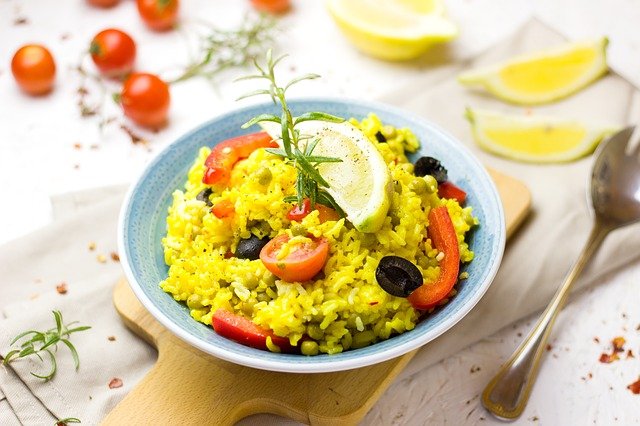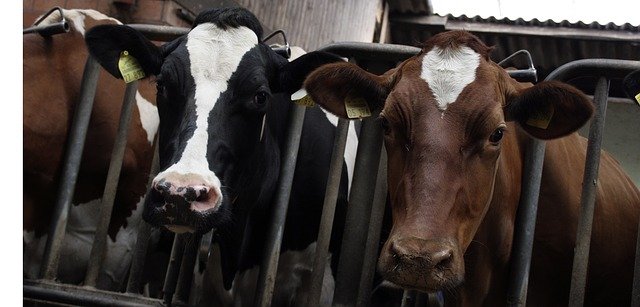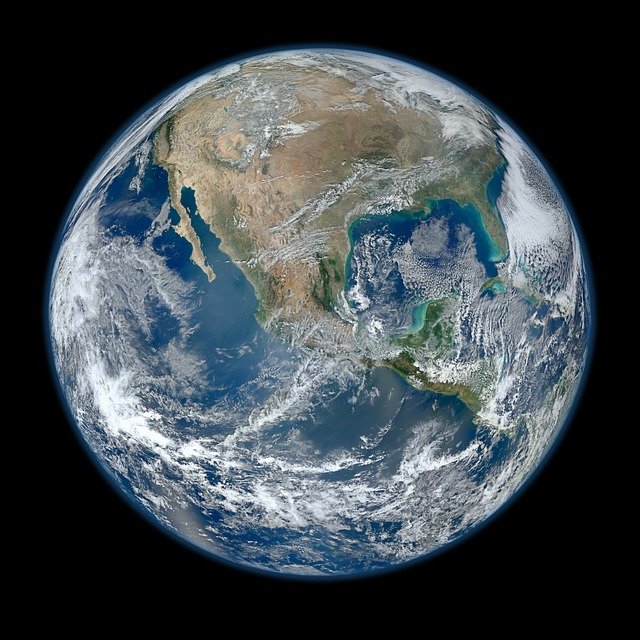Recently I had a wake-up call when I took a selfie and saw a double chin that had not been there before.

To me, the double chin was the canary in the coal mine. I knew that, if I stayed slim and fit, it would give me the best chance of retaining the good health that I've enjoyed until now.
So, as far as I was concerned, the double chin had to go.
Okay, so which diet?
When it comes to diet, I feel as if I’ve tried them all.
Well, not all. But I certainly have tried several diets, and they’ve been all over the map.
It seems that the two main themes in dieting are:
(1) low carb / high fat – Atkins, Banting, paleo, ketogenic, etc.
(2) high carb / low fat – vegan, raw food, etc.
Well, I’ve been there, done that, and have the T-shirts ……. at both ends of the spectrum.
Perhaps you have experienced the same frustrations that I have in searching for the healthiest diet.
There are many eminent doctors who have written books that cite credible-sounding research.
It seems that they all claim to know how our distant human ancestors ate. And yet researchers in different camps have our distant human ancestors eating different stuff!
As a lay person, I didn’t know how to evaluate the claims against each other. I felt confused.

A recent testimonial
I had been watching some of Jeff Berwick's videos on You Tube. I had been following him because I was interested in his explanations of cryptocurrencies. But, along the way, I noted other things he said as well. He shared the measures he had taken to look after his health.
His vegan, mostly raw diet, for instance. He described how well he was feeling on it.
He said that Dr. Robert Morse had been his most helpful source of information.
I did a Google search, and found that Robert Morse is a naturopath. He is the author of The Detox Miracle Sourcebook.
He has innumerable videos on You Tube, and I watched several of them.
Dr. Morse advocates a mainly fruit diet, with some non-starchy vegetables and a few nuts and seeds. He considers a 100% raw diet to be ideal, but concedes that a fine degree of health can be maintained on an 80% raw diet.

I thought Dr. Morse’s explanation regarding human physiology was compelling. That is, he explained why our build suggests we’re frugivores, like our gorilla cousins. So many features of our bodies – such as our teeth and our intestines – are like those of frugivores rather than like those of carnivores.
Like a gorilla, a human living in the wild has a preference for fruit. If fruit is not available, the gorilla’s next preference will be leaves. If a gorilla runs out of plant food, it will resort to eating animal foods, such as insects. However, animal foods constitute only 5% of a wild gorilla’s food intake.
Humans have been able to adapt to different geographic regions. As edible plants became less readily available further from the equator, humans were able to adapt to getting more of their nutrition from animals.
But, according to Dr. Morse, we humans did not do ourselves any favors, from a health point of view, when we migrated away from the tropics. The tropical latitudes, with their ready supply of fruit, are the ones that are best suited to an animal of our build.
The search continues …….
From Dr. Morse, my internet search took me to a medical doctor, John McDougall. He is the author of The Starch Solution.
He too has many videos on You Tube, and I’ve watched several of them as well.
Dr. McDougall’s light bulb moment
The penny dropped for Dr. McDougall when he was nearing the end of his internship. Until then he had felt frustrated that he was being taught to administer drugs and perform surgical procedures that kept people alive but that didn’t cure them. He had been searching for measures that could prevent and reverse chronic, degenerative diseases. But preventative measures and cures had remained frustratingly elusive during his medical training.
Then he attended a lecture by Dr. Denis Burkitt that changed his life. Dr. Burkett was an Irish doctor who had spent 17 years as the Chief Medical Officer of Uganda during the 1950s and 1960s. He had supervised 100 hospitals and, during his tenure, those hospitals had treated 10 million patients. Dr. Burkett said that, in all those years, he hadn’t seen a single case of bowel cancer, breast cancer, diabetes, stroke, diverticulitis, irritable bowel syndrome, arthritis, and a litany of other chronic, degenerative diseases.
In all that time, Dr. Burkitt witnessed one case of hemorrhoids, and he saw one heart attack patient. The heart attack victim was a man who had left the country to study in the United Kingdom, and then returned to Uganda.
Dr. Burkitt said there was a single word that explained the health of Ugandans, and that was fiber. Their diet was rich in fiber, and that was because a lot of their food came from plants. One of Dr. Burkitt's pithy sayings was:
America is a constipated nation.... If you pass small stools, you have to have large hospitals.
Dr. Burkitt’s lecture was John McDougall’s Eureka moment. It told him there was a cause of chronic, degenerative diseases. Therefore, it followed that there was the potential for preventative measures and cures.
Next stop, Hawaii …….
Once Dr. McDougall qualified as a doctor, his first job was treating workers on sugar cane plantations in Hawaii. This was in the early 1970s. Most of the workers were first, second and third-generation immigrants from China, Korea and Japan. Dr. McDougall noticed the differences in the levels of health among the generations, and he also noticed the differences in their diets.
The original immigrants, the first generation, stuck to their native, plant-based diets (rice, beans, etc.). These people were slim and remained fit well into their eighties and nineties. The second generation had adopted some American-style food. They were a little pudgier and a little less healthy. The third generation were thoroughly Americanized, thoroughly fat, and thoroughly unhealthy. This only confirmed what Dr. McDougall had heard in Dr. Burkitt’s lecture.
That was the start of Dr. McDougall’s quest for health, which he has pursued ever since. It led him to a plant-based diet, focusing on whole and minimally processed foods. That has been the primary treatment that he has used on his patients.
Compared with Dr. Morse, who focuses on a raw diet, Dr. McDougall permits more cooked food. He is fine with starches, such as whole grains, root vegetables, squashes, and legumes. Of course, he likes non-starchy vegetables and fruit as well, with a few nuts and seeds thrown in for good measure.

Still more research
Following numerous You Tube videos featuring Dr. McDougall, my next exposure to veganism was the documentary, Forks Over Knives.
It featured the research of two doctors, Colin Campbell (a nutritional biochemist) and Caldwell Esselsteyn (a surgeon), who for decades worked independently of each other, coming to the same conclusions.
Dr. Campbell was one of the leaders of the China-Cornell-Oxford Project, a study that compiled health data on thousands of people in 65 rural counties of China. Historical data from 1973 – 1975 was compared with then-current data during 1983 – 1984. Dr. Campbell was one of the co-authors of a book, The China Study, that described the project’s findings. The data made a convincing case in favor of plant-based nutrition.

Ironically, as China’s level of prosperity increases, the Chinese people’s habits are becoming more western. They’re now eating less healthily than they did at the time of the China Project. Popular western opinions have taken hold among the Chinese people, namely, that one needs to eat meat for protein and dairy products for calcium. There is a corresponding rise in the incidence of western diseases in China.
Dr. Esselsteyn, the other doctor featured in Forks Over Knives, is a surgeon who focuses on preventing and reversing heart disease through a plant-based diet. He has enjoyed remarkable success with his approach.
Whom to believe?
If you look up The China Study on Wikipedia, you will find a couple of warnings at the top of the screen:
The neutrality of this article is disputed.
This article may represent fringe theories, without giving appropriate weight to the mainstream view.
When it comes to the mainstream view, I would urge one caution. Be aware of the financial interests of various factions.

Stop and think about it
What is most financially profitable to the medical system – if you’re healthy, if you’re dead, or if you’re alive but sick? I would argue that the third state is the most profitable one for the medical system.
If you’re healthy, the system is going to make little money from you.
If you’re dead, it’s going to make no money from you.
If you're sick, it's going to make the most money from you.
So, just from the point of view of the greatest financial interest, it would suit the system if you stayed sick.
Of course, many of the people who are attracted to medicine are idealistic. They enter the profession with the best of intentions.
But an idealistic doctor often is up against opposing forces.
Most doctors start out with a hefty student loan that they need to pay off.
Then, if they rock the boat too much, the system freezes them out.
Even if neither of those factors is at play in the case of an individual doctor, the entire thrust of their training is informed by Big Pharma and focuses on the treatment of symptoms rather than the discovery of causes.
Agribusiness’s financial interests
The agricultural industry also has a vested interest in how things play out. That industry looks at the feed-conversion ratio. That is, how many pounds of input does it take to get one pound of output? For example, how many pounds of plant food does it take to get one pound of meat? In the case of cattle, the ratio is about 6:1. For a sheep, it’s about 5:1. For a pig, it’s about 4:1. For a chicken, it’s about 2:1.
So, what’s more profitable for the agricultural industry? To sell you, the consumer, one pound of plant food or one pound of meat? I’d say it’s a no-brainer. Since it took several pounds of plant feed to create one pound of meat, the financial benefits would be greater and more spread out if you, the supermarket shopper, bought a pound of meat. Not only would you be supporting the meat farmer, but you’d also be supporting the crop farmer who supplied feed to the meat farmer.
Deeper corruption
Even at that most basic level, common sense tells me that Big Agriculture and Big Pharma stand to gain if I eat animal products and stay alive, but at a sub-optimal level of health.
But there is a fair amount of evidence that the system is corrupt at deeper levels than that – levels that members of the public do not see.
Dr. Neal Barnard, President of the non-profit Physicians Committee for Responsible Medicine, states that ninety percent of medical research in the USA is funded by corporate interests (Big Pharma and Big Agriculture).
In January 2016, the Physicians Committee for Responsible Medicine successfully sued the US Department of Agriculture, because the advice that it provided in its dietary guidelines was too obscure for members of the public to understand. As Barnard pointed out, six of the eleven panelists on the Dietary Guidelines Advisory Committee had ties to large agricultural corporations and therefore a conflict of interest.
Big Agriculture loves low-carb / high-fat diets
Dr. John McDougall has stated that, while he has absolutely no evidence of low-carb diet authors being involved in corruption, he also has no doubt that their books make Big Agriculture very happy.
The low-carb crowd has turned sugar into a scapegoat
The low-carb diet books place the blame for ill health on sugar and on the starches that the body turns into sugar – grains, potatoes, even fresh fruit.
Though Dr. McDougall acknowledges that refined sugar is not good for our health, he says it’s less detrimental than animal foods.
He and Dr. Neal Barnard say it’s okay to sprinkle a small amount of sugar on oats porridge or to spread a small amount of jam on toast, for example.
Scapegoating of sugar from a financial point of view
Even if all of us stopped eating sugar and starchy crops tomorrow, it would not make all that appreciable a dent in crop farmers’ profits. They sell 80% of their crops as animal feed.
So, it’s easy to scapegoat sugar. Who cares? The public will keep buying meat, which is an indirect way of buying sugar. At least that’s how I see it.
Animal Cruelty
One of the issues that bothered me when I was eating meat was the cruelty towards animals that I knew it involved. Factory farming methods are horrible.
How can I love dogs and cats, but spend my money in a way that supports the confinement and ill treatment of animals that have as much feeling as dogs and cats have?

And, of course, animals that are raised in crowded conditions are vulnerable to infections which, in turn, necessitate the use of antibiotics.
I got around both of these problems by buying organic, free range meat, dairy products and eggs. Yes, that was better than eating factory-farmed animals. But the issue of the animals’ slaughter remained. And organic animal farming still didn’t address the issue of …….
Environmental Degradation
If everyone was to eat the Standard American Diet, we would need three or four Earths to accommodate our agricultural practices.

The farming of animals has such a huge impact on the environment that, when we switch to a vegan diet, we immediately shrink our environmental footprint to half of what it had been.
It takes ten times as much fossil fuel to generate one calorie of food from an animal as it takes to generate one calorie of food from a plant. We use a staggering amount of resources to grow crops to feed to the animals that we, in turn, eat.
Regardless of how much we fly or drive, how much we heat or cool our houses, whether or not we recycle, the biggest single difference we can make to the environment is switching to a vegan diet.
How to do this
Suppose you agree with me, and want to become a healthy vegan, how do you go about it?
The things to aim for are:
Foods that come from plants.
Foods that are whole or processed as little as possible.
Foods that you prepare yourself or that -- if you wanted to and had the time -- you could prepare yourself. (An example is bread.)
A moderate amount of exercise.
Regular exposure to a little sunshine.

Here are things to avoid:
Any food that had a face (meat, fish).
Any food that came from something that had a face (dairy products, eggs).
Any food that’s highly processed, concentrated or refined (vegetable oil, sugar).
Coffee, which is a drug.
Alcohol. It's a drug, and fits my definition of a processed food.
Nicotine
Pitfalls of refined foods
When you eat an apple, the sugar in it comes packaged with other ingredients, such as fiber and vitamins. Because of the fiber, it takes only a few apples to make you feel full and stop eating. The sugar in the apple is digested slowly and released into the blood stream slowly. Therefore, it gives you a steady flow of energy over a sustained length of time.
A can of Coke, on the other hand, contains no fiber. You’ll drink a lot of Coke before you feel full and stop drinking. Being highly concentrated, the sugar in the Coke is released into your body quickly. It gives you an energy spike, followed by an energy crash.
What’s nice about being a vegan
It makes sense to me that this is the way of eating that’s best for my health.
I’m glad that my eating habits are causing less hurt to other creatures than my former habits did.
I’m glad to have reduced my environmental footprint.
I expect this way of eating to be less expensive.
What is a little daunting
I love bacon, eggs, cheese, butter, and salad dressing. Creating meals without them is a learning curve.
I'm addicted to coffee. As an interim step, I've cut back to one cup of coffee in the morning. I intend to phase that out.
Oh, and then there’s ice cream. Ouch. I definitely deserve a medal for giving that up. Ha ha.
I’ll let you know how it’s going
When I’ve ditched the double chin, I’ll post another selfie, LOL.
Wonderful Post @judyroberts! I really loved it!
I've researched much of this as well though some things you mentioned here I didn't have the real figures on.
If you look up what to do when you are sick or having any type of physical issue nearly at all. Things from collagen production to hair loss and color change, fatigue, colds, major diseases you name it, one thread links them all.
Nearly everything, even from doctors that say to eat meat, tells you to eat more raw fruits and veggies and stay away from meats, dairy and processed foods during the time of your issue.
Of course the doctors that promote eating meat will for some reason tell you to go back to eating it once you are better. LMAO
Thank you, Michael. I'm so glad you enjoyed my post. I'm interested to find out that you too have investigated these issues.
I started studying nutritional healing about 20 years ago, became a vegetarian and dropped all forms of chemicals from my body. Well, maybe not every single one ;)
These days I do eat meat and drink alchohol though not super often. Due to a drop in my energy field and lack of self confidence that is being rapidly healed as of late.
Back on the road to at least being vegetarian again. Still some chicken n fish in the freezer though.
That's great you are taking steps to become healthier. I would never stop doing research though. I have a few problems with veganism, but first of all, what's wrong with eggs, particulary eggs from my dad's chickens that are free range and get to run around doing chicken stuff all day? Eggs are one of the most nutrient-dense foods around, chickens lay them naturally, and the evidence of fat and chlorestol from good sources being bad for you is actually pretty limited. From my research and experience, eggs should be a part of any healthy diet, especially since your brain is all fat and your body needs to make chloresterol in order to regenerate it. My diet is built on balance and getting whatever I eat from the cleanest, most natural, and most local source I can. But I also think we're all a little different and need to find our own diet that works for us. Never stop questioning or exploring! Good luck!
Thank you for commenting, Sam. Yes, I agree with you about maintaining an attitude of curiosity and keeping on researching. Your father's chickens sound very happy. :-)
They seem happy! I hate the big Ag business too but I think humans and animals can have a more syngeristic relationship instead of just exploitive. Also, animals play a roll in raising plants too: eating bugs, roughage, producing fertilizer, so I think a balanced farm should raise both. Nevermind that the facts that humans have been eating animals since as far back as we can tell, or that all animals have to consume some other form of life to survive, or that those studies don't usually take into account the loss of habitat for animals big veggie farms create too. To me, it's not about what you eat but having respect for all life and seeing yourself as a part of the whole. We will be something's food one day too ;)
Congratulations @judyroberts! You have completed some achievement on Steemit and have been rewarded with new badge(s) :
Click on any badge to view your own Board of Honor on SteemitBoard.
For more information about SteemitBoard, click here
If you no longer want to receive notifications, reply to this comment with the word
STOPHi. I am a volunteer bot for @resteembot that upvoted you. Your post was chosen at random, as part of the advertisment campaign for @resteembot. @resteembot is meant to help minnows get noticed by re-steeming their posts
To use the bot, one must follow it for at least 3 hours, and then make a transaction where the memo is the url of the post.
If you want to learn more - read the introduction post of @resteembot.
If you want help spread the word - read the advertisment program post.
Steem ON!
I love your writing style and the way you present information is pretty easy to absorb. Thank you for sharing!
Thank you for your kind words, Sadman. I'm so glad you find my information to be clear. :-)
Congratulations @judyroberts! You have completed some achievement on Steemit and have been rewarded with new badge(s) :
Click on any badge to view your own Board of Honor on SteemitBoard.
For more information about SteemitBoard, click here
If you no longer want to receive notifications, reply to this comment with the word
STOPCongratulations @judyroberts! You have received a personal award!
Click on the badge to view your Board of Honor.
Do not miss the last post from @steemitboard!
Participate in the SteemitBoard World Cup Contest!
Collect World Cup badges and win free SBD
Support the Gold Sponsors of the contest: @good-karma and @lukestokes
Congratulations @judyroberts! You received a personal award!
You can view your badges on your Steem Board and compare to others on the Steem Ranking
Vote for @Steemitboard as a witness to get one more award and increased upvotes!